137 scholarly books by Autumn House Press and 19
have author last names that start with S
137 scholarly books by Autumn House Press and 19
137 scholarly books by Autumn House Press
19 have author last names that start with S have author last names that start with S
19 have author last names that start with S have author last names that start with S
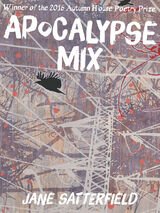
Apocalypse Mix
Jane Satterfield
Autumn House Press, 2017
Jane Satterfield’s fourth poetry collection, Apocalypse Mix, dives into a musical, war-torn, elegiac past.
[more]

Half-Lives
Lynn Schmeidler
Autumn House Press, 2024
A playful debut short story collection imagining women’s lives in a world free of social limitations.
Amid heightened restrictions about what women can and cannot do with their bodies, Lynn Schmeidler’s debut short story collection, Half-Lives, is a humane, absurd, and timely collection of narratives centering on women’s bodies and psyches. Playful and experimental, these sixteen stories explore girlhood, sexuality, motherhood, identity, and aging in a world where structures of societal norms, narrative, gender, and sometimes even physics do not apply. The protagonists grapple with the roles they choose and with those that are thrust upon them as they navigate their ever-evolving emotional lives. A woman lists her vagina on Airbnb, Sleeping Beauty is a yoga teacher who lies in state on the dais of her mother’s studio, and a museum intern writes a confession of her affair in the form of a hijacked museum audio guide.
Half-Lives is the 2023 Rising Writer Prize winner, selected by Matt Bell.
Amid heightened restrictions about what women can and cannot do with their bodies, Lynn Schmeidler’s debut short story collection, Half-Lives, is a humane, absurd, and timely collection of narratives centering on women’s bodies and psyches. Playful and experimental, these sixteen stories explore girlhood, sexuality, motherhood, identity, and aging in a world where structures of societal norms, narrative, gender, and sometimes even physics do not apply. The protagonists grapple with the roles they choose and with those that are thrust upon them as they navigate their ever-evolving emotional lives. A woman lists her vagina on Airbnb, Sleeping Beauty is a yoga teacher who lies in state on the dais of her mother’s studio, and a museum intern writes a confession of her affair in the form of a hijacked museum audio guide.
Half-Lives is the 2023 Rising Writer Prize winner, selected by Matt Bell.
[more]
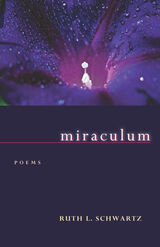
Miraculum
Ruth L. Schwartz
Autumn House Press, 2012
As in her previous collections, Miraculum shows Schwartz's true ability as a poet. These poems are passionate, tender, tough, and brimming with life.
[more]

Little Raw Souls
Steven Schwartz
Autumn House Press, 2013
Schwartz settles across the southwest to shed light on souls who, despite all odds, are still looking for meaning.
[more]
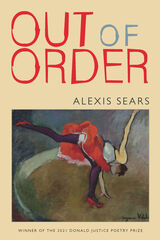
Out of Order
Alexis Sears
Autumn House Press, 2022
A debut collection featuring formally diverse poems that address topics from misogyny and mental health to race and identity.
Alexis Sears’s debut collection, Out of Order, is a collage of unapologetic intimacy, risk-taking vulnerability, and unwavering candor. A biracial millennial woman, Sears navigates the challenges of growing out of girlhood and into womanhood with its potential dangers, interrogating the male gaze, beauty standards, and confidence and identity. Pop culture references run through the collection, with rock icons David Bowie and Prince and poets like Kenneth Koch offering windows into desire and adaptation. In these poems, Sears works through heavy topics, such as loneliness, mental illness, chronic pain, the legacies of race and racism, and the aftermath of a father’s suicide. As she writes, “I’m learning something every ravishing day / and none of it is easy.”
This young poet demonstrates an uncommon mastery of craft, writing in forms including the sonnet redoublé, sestina, canzone, and villanelle. With all her linguistic skills, Sears’s work remains approachable, offering readers a striking blend of honesty, humor, anguish, joy, and surprise. Drawing influence from contemporary poets like Mark Jarman, Erica Dawson, and Tiana Clark, Sears cuts a path of her own.
Out of Order was the 2021 winner of the Donald Justice Poetry Prize.
Alexis Sears’s debut collection, Out of Order, is a collage of unapologetic intimacy, risk-taking vulnerability, and unwavering candor. A biracial millennial woman, Sears navigates the challenges of growing out of girlhood and into womanhood with its potential dangers, interrogating the male gaze, beauty standards, and confidence and identity. Pop culture references run through the collection, with rock icons David Bowie and Prince and poets like Kenneth Koch offering windows into desire and adaptation. In these poems, Sears works through heavy topics, such as loneliness, mental illness, chronic pain, the legacies of race and racism, and the aftermath of a father’s suicide. As she writes, “I’m learning something every ravishing day / and none of it is easy.”
This young poet demonstrates an uncommon mastery of craft, writing in forms including the sonnet redoublé, sestina, canzone, and villanelle. With all her linguistic skills, Sears’s work remains approachable, offering readers a striking blend of honesty, humor, anguish, joy, and surprise. Drawing influence from contemporary poets like Mark Jarman, Erica Dawson, and Tiana Clark, Sears cuts a path of her own.
Out of Order was the 2021 winner of the Donald Justice Poetry Prize.
[more]

Out of Order
Alexis Sears
Autumn House Press, 2022
A debut collection featuring formally diverse poems that address topics from misogyny and mental health to race and identity.
Alexis Sears’s debut collection, Out of Order, is a collage of unapologetic intimacy, risk-taking vulnerability, and unwavering candor. A biracial millennial woman, Sears navigates the challenges of growing out of girlhood and into womanhood with its potential dangers, interrogating the male gaze, beauty standards, and confidence and identity. Pop culture references run through the collection, with rock icons David Bowie and Prince and poets like Kenneth Koch offering windows into desire and adaptation. In these poems, Sears works through heavy topics, such as loneliness, mental illness, chronic pain, the legacies of race and racism, and the aftermath of a father’s suicide. As she writes, “I’m learning something every ravishing day / and none of it is easy.”
This young poet demonstrates an uncommon mastery of craft, writing in forms including the sonnet redoublé, sestina, canzone, and villanelle. With all her linguistic skills, Sears’s work remains approachable, offering readers a striking blend of honesty, humor, anguish, joy, and surprise. Drawing influence from contemporary poets like Mark Jarman, Erica Dawson, and Tiana Clark, Sears cuts a path of her own.
Out of Order was the 2021 winner of the Donald Justice Poetry Prize.
Alexis Sears’s debut collection, Out of Order, is a collage of unapologetic intimacy, risk-taking vulnerability, and unwavering candor. A biracial millennial woman, Sears navigates the challenges of growing out of girlhood and into womanhood with its potential dangers, interrogating the male gaze, beauty standards, and confidence and identity. Pop culture references run through the collection, with rock icons David Bowie and Prince and poets like Kenneth Koch offering windows into desire and adaptation. In these poems, Sears works through heavy topics, such as loneliness, mental illness, chronic pain, the legacies of race and racism, and the aftermath of a father’s suicide. As she writes, “I’m learning something every ravishing day / and none of it is easy.”
This young poet demonstrates an uncommon mastery of craft, writing in forms including the sonnet redoublé, sestina, canzone, and villanelle. With all her linguistic skills, Sears’s work remains approachable, offering readers a striking blend of honesty, humor, anguish, joy, and surprise. Drawing influence from contemporary poets like Mark Jarman, Erica Dawson, and Tiana Clark, Sears cuts a path of her own.
Out of Order was the 2021 winner of the Donald Justice Poetry Prize.
[more]
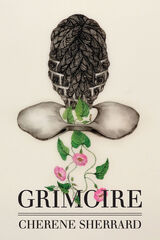
Grimoire
Cherene Sherrard
Autumn House Press, 2020
Named after a magical textbook, Cherene Sherrard’s Grimoire is a poetry collection centered on the recovery and preservation of ancestral knowledge and on the exploration of black motherhood. Incorporating experiences of food preparation, childrearing, and childbearing, the book begins with a section of poems that re-imagine recipes from one of the earliest cookbooks by an African-American woman: Mrs. Malinda Russell’s A Domestic Cookbook. Mrs. Russell’s voice as a nineteenth century chef is joined in conversation with a contemporary amateur cook in poetic recipes that take the form of soft and formal sonnets, introspective and historical lyric, and found poems. In the second section, the poet explores black maternal death and the harrowing circumstances surrounding birth for women of color in the United States.
Even while confronting the dangers and tragedies of contemporary black life, Sherrard creates hopeful projections of the future. She imagines an afterlife in which souls of black mothers who have died in childbirth get to travel into space with the reluctant help of the astrophysicist Neil deGrasse Tyson, and she positions a doula as a figure of salvation who intervenes and advocates for black mothers, challenging the dehumanizing practices of early obstetrics, genetics, and pseudo-science. Throughout Grimoire, Sherrard explores the precarity of black mothering over the last two centuries and the creative and ingenuous modes of human survival.
Even while confronting the dangers and tragedies of contemporary black life, Sherrard creates hopeful projections of the future. She imagines an afterlife in which souls of black mothers who have died in childbirth get to travel into space with the reluctant help of the astrophysicist Neil deGrasse Tyson, and she positions a doula as a figure of salvation who intervenes and advocates for black mothers, challenging the dehumanizing practices of early obstetrics, genetics, and pseudo-science. Throughout Grimoire, Sherrard explores the precarity of black mothering over the last two centuries and the creative and ingenuous modes of human survival.
[more]

Vixen
Cherene Sherrard
Autumn House Press, 2017
Cherene Sherrard’s poetry collection Vixen takes to task the historical narratives and artistic mediums that have shaped racial and gender identity. She asks her readers to closely examine the hand that guides the pen, the photographer behind the lens, and the star on stage. In powerful, finely crafted lines, Sherrard’s poems interrupt and redirect the conversation. Sherrard’s voice-driven poems are accessible to any reader interested in work that examines racial and black female representation within a historical, cultural, and artistic framework.
[more]
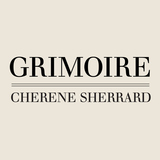
Grimoire
Cherene Sherrard
Autumn House Press, 2020
Named after a magical textbook, Cherene Sherrard’s Grimoire is a poetry collection centered on the recovery and preservation of ancestral knowledge and on the exploration of black motherhood. Incorporating experiences of food preparation, childrearing, and childbearing, the book begins with a section of poems that re-imagine recipes from one of the earliest cookbooks by an African-American woman: Mrs. Malinda Russell’s A Domestic Cookbook. Mrs. Russell’s voice as a nineteenth century chef is joined in conversation with a contemporary amateur cook in poetic recipes that take the form of soft and formal sonnets, introspective and historical lyric, and found poems. In the second section, the poet explores black maternal death and the harrowing circumstances surrounding birth for women of color in the United States.
Even while confronting the dangers and tragedies of contemporary black life, Sherrard creates hopeful projections of the future. She imagines an afterlife in which souls of black mothers who have died in childbirth get to travel into space with the reluctant help of the astrophysicist Neil deGrasse Tyson, and she positions a doula as a figure of salvation who intervenes and advocates for black mothers, challenging the dehumanizing practices of early obstetrics, genetics, and pseudo-science. Throughout Grimoire, Sherrard explores the precarity of black mothering over the last two centuries and the creative and ingenuous modes of human survival.
Even while confronting the dangers and tragedies of contemporary black life, Sherrard creates hopeful projections of the future. She imagines an afterlife in which souls of black mothers who have died in childbirth get to travel into space with the reluctant help of the astrophysicist Neil deGrasse Tyson, and she positions a doula as a figure of salvation who intervenes and advocates for black mothers, challenging the dehumanizing practices of early obstetrics, genetics, and pseudo-science. Throughout Grimoire, Sherrard explores the precarity of black mothering over the last two centuries and the creative and ingenuous modes of human survival.
[more]

Favorite Monster
Sharma Shields
Autumn House Press, 2012
In her debut story collection, Shields unveils the truth behind every monster.
[more]
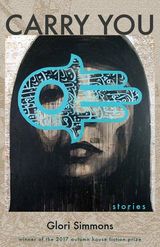
Carry You
Glori Simmons
Autumn House Press, 2018
Glori Simmons’s new book, Carry You, is a timely collection of linked short stories that examines how war shapes and distorts our understanding of family, friends, country, and self. Simmons draws out the humanity of her characters, their flaws and failings, their hopes and desires, and their dreams for the future. These stories show that the human capacity for violence, compassion, and love are not bound by time or place.
[more]

The Autumn House Anthology of Contemporary American Poetry
Michael Simms
Autumn House Press, 2015
A comprehensive selection of work by 110 important American poets including Kim Addonizio, Jimmy Santiago Baca, George Bilgere, Chana Bloch, Lucille Clifton, Billy Collins, Toi Derricotte, Stephen Dobyns, Rita Dove, Denise Duhamel, Stephen Dunn, Terrance Hayes, Bob Hicok, Jane Hirshfield, Tony Hoagland, Marie Howe, Joy Katz, Jane Kenyon, Li-Young Lee, Philip Levine, Larry Levis, William Matthews, Jeffery McDaniel, Naomi Shihab Nye, Ed Ochester, Linda Pastan, and Natasha Tretheway.
[more]

The Small Door of Your Death
Sheryl St. Germain
Autumn House Press, 2018
This honest and haunting collection of poems follows the loss of the poet’s only son to heroin addiction. St. Germain takes us through the stages of her grief and offers no false promises or simple answers. These narrative-driven poems are a compelling and compassionate look into addiction and the effect it has on a family.
[more]

The Small Door of Your Death
Sheryl St. Germain
Autumn House Press, 2022
This honest and haunting collection of poems follows the loss of the poet’s only son to heroin addiction. St. Germain takes us through the stages of her grief and offers no false promises or simple answers. These narrative-driven poems are a compelling and compassionate look into addiction and the effect it has on a family.
[more]
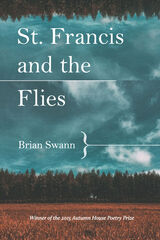
St. Francis and the Flies
Brian Swann
Autumn House Press, 2016
Winner of the 2015 Autumn House Press Poetry Contest, selected by Dorianne Laux. St. Francis and the Flies is the 11th poetry collection of noted translator, Brian Swann. These stunning poems engage with the natural world unlike any other poet of our time. Rich with history, Swann's poem are both complex and delicate.
[more]
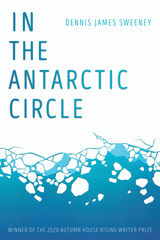
In the Antarctic Circle
Dennis James Sweeney
Autumn House Press, 2021
This collection addresses issues of identity as two people find themselves living in an uncommon landscape. Through hybrid narrative prose poems, Hank and an unnamed narrator try to navigate their relationship and understand their identities amid a landscape that offers them almost nothing. The continent at first seems empty, but something emerges in the vacuum of Antarctica. The narrator’s gender skips and changes, and the characters’ self-awareness grows into a sort of horror. Dennis James Sweeney’s poems consider the fullness of emptiness, revealing attempts to love and grow when surrounded by a white and frigid landscape that seems to go on forever.
The space of these poems is something beyond the Antarctic of scientific exploration, the icy outpost that has served for so long as a masculine proving ground for polar explorers. This is the Antarctica of domestic disharmony, of love amid loneliness, where two people encounter themselves in the changeless breadth at the end of the world.
In the Antarctic Circle is the winner of the Autumn House Press 2020 Rising Writer Prize in Poetry.
The space of these poems is something beyond the Antarctic of scientific exploration, the icy outpost that has served for so long as a masculine proving ground for polar explorers. This is the Antarctica of domestic disharmony, of love amid loneliness, where two people encounter themselves in the changeless breadth at the end of the world.
In the Antarctic Circle is the winner of the Autumn House Press 2020 Rising Writer Prize in Poetry.
[more]

In the Antarctic Circle
Dennis James Sweeney
Autumn House Press, 2021
This collection addresses issues of identity as two people find themselves living in an uncommon landscape. Through hybrid narrative prose poems, Hank and an unnamed narrator try to navigate their relationship and understand their identities amid a landscape that offers them almost nothing. The continent at first seems empty, but something emerges in the vacuum of Antarctica. The narrator’s gender skips and changes, and the characters’ self-awareness grows into a sort of horror. Dennis James Sweeney’s poems consider the fullness of emptiness, revealing attempts to love and grow when surrounded by a white and frigid landscape that seems to go on forever.
The space of these poems is something beyond the Antarctic of scientific exploration, the icy outpost that has served for so long as a masculine proving ground for polar explorers. This is the Antarctica of domestic disharmony, of love amid loneliness, where two people encounter themselves in the changeless breadth at the end of the world.
In the Antarctic Circle is the winner of the Autumn House Press 2020 Rising Writer Prize in Poetry.
The space of these poems is something beyond the Antarctic of scientific exploration, the icy outpost that has served for so long as a masculine proving ground for polar explorers. This is the Antarctica of domestic disharmony, of love amid loneliness, where two people encounter themselves in the changeless breadth at the end of the world.
In the Antarctic Circle is the winner of the Autumn House Press 2020 Rising Writer Prize in Poetry.
[more]

Voice Message
Katherine Barrett Swett
Autumn House Press, 2020
Through the poems of Voice Message, Katherine Barrett Swett reflects on her personal tragedy and the fragility of human lives and bodies with a tender care. Her debut collection explores the powers of art and poetry to participate in the processing of catastrophic grief, speaking through both the consolation and devastation these creative works can offer. Swett’s formal verse provides a lens through which sadness, destruction, and loss appear as aberrant and inevitable. In tragic lyric, the poet searches poetry, art, mythology, and her own memory for the fleeting image of her lost daughter “in music, painting, or a carved stone name.” Frequently looking to visual arts for inspiration, she finds that Vermeer’s paintings of distant rooms guide and contextualize pain, offering motivation, comfort, and release. Through villanelles, sonnets, quatrains, and free verse, Swett invokes the voices, narratives, and images, both personal and cultural, that haunt her speakers. Suspended in the aftermath of the unexpected and unspeakable death of her college-age daughter, the poet’s language is held together in a somber and necessary restraint. But this restraint does not signal the peace of closure. Rather, these poems quietly and steadily remind readers it is still “the open wound / not the scar,” that “all we have are words and flesh,” and that we are forever vulnerable. The rhythm of and echoes of sonnets and songs lead us to the sticky intersections of tragedy, recovery, and strange forms of beauty.
[more]

Voice Message
Katherine Barrett Swett
Autumn House Press, 2020
Through the poems of Voice Message, Katherine Barrett Swett reflects on her personal tragedy and the fragility of human lives and bodies with a tender care. Her debut collection explores the powers of art and poetry to participate in the processing of catastrophic grief, speaking through both the consolation and devastation these creative works can offer. Swett’s formal verse provides a lens through which sadness, destruction, and loss appear as aberrant and inevitable. In tragic lyric, the poet searches poetry, art, mythology, and her own memory for the fleeting image of her lost daughter “in music, painting, or a carved stone name.” Frequently looking to visual arts for inspiration, she finds that Vermeer’s paintings of distant rooms guide and contextualize pain, offering motivation, comfort, and release. Through villanelles, sonnets, quatrains, and free verse, Swett invokes the voices, narratives, and images, both personal and cultural, that haunt her speakers. Suspended in the aftermath of the unexpected and unspeakable death of her college-age daughter, the poet’s language is held together in a somber and necessary restraint. But this restraint does not signal the peace of closure. Rather, these poems quietly and steadily remind readers it is still “the open wound / not the scar,” that “all we have are words and flesh,” and that we are forever vulnerable. The rhythm of and echoes of sonnets and songs lead us to the sticky intersections of tragedy, recovery, and strange forms of beauty.
[more]
READERS
Browse our collection.
PUBLISHERS
See BiblioVault's publisher services.
STUDENT SERVICES
Files for college accessibility offices.
UChicago Accessibility Resources
home | accessibility | search | about | contact us
BiblioVault ® 2001 - 2024
The University of Chicago Press









